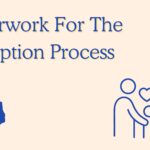
Failing birth control. Lack of contraception. Lack of health insurance support. However it happened, an unexpected pregnancy can be terribly upsetting. And for some, the most difficult part isn’t just the pregnancy itself. It’s hard coming to terms with the fact that they don’t want to raise a baby. That realization can feel isolating, confusing, or even shameful—but it shouldn’t be.
Know that you are not alone and you are in control of your own life. Many women have stood where you are right now, facing similar questions and feelings. And more importantly, you are not without options. You still have control over your body, your future, and your child’s future.
This article was created to help you navigate your feelings and this process.
Is It Wrong Not To Want a Baby Right Now?
Absolutely not. If you’re facing an unplanned pregnancy and don’t feel ready to raise a child, you’re not alone. Nearly half of pregnancies in the U.S. are unplanned. So, let’s be clear: wanting a better life for yourself and your baby is not wrong. In fact, it’s very brave.
If you’re unsure why you feel this way, here are a few common reasons women consider options beyond parenting.
- Your Environment Isn’t Ideal: If you’re struggling to meet your own needs, adding the financial responsibility of raising children may feel overwhelming. You may love kids but don’t like having one right now.
- You Have Other Goals for Your Life: You may want children someday, but not today. It’s okay if this stage of your life feels too full or too fragile to take on parenting responsibilities.
- You Don’t Want to Be a Parent: For some people, parenting simply doesn’t align with their life plans, and that’s valid, too. Acknowledging that you don’t want to raise a child is okay.
Additionally, some single expectant mothers would prefer their child be raised in a two-parent household, which their current relationship status doesn’t allow for. Some expectant mothers really prefer their child-free life. Some expectant mothers do not feel mentally or physically ready to raise a baby.
Only you can decide what’s truly important to you, but this can be a very stressful time for many women. You might be experiencing:
- Anger: “Why is this happening to me?”
- Hopelessness: “I have no control over my life.”
- Denial: “Maybe if I ignore it, it’ll go away.”
- Fear: “What happens now?”
- Doubt: “I’m not strong enough for this.”
These emotions are common, but if they’re intense or persistent, it’s important to seek help. Speaking with an adoption counselor or healthcare provider can help you explore your options and feel in control of your life again.
What Do I Do With An Unplanned Pregnancy?
Now that you know, there is nothing wrong with not wanting to parent. It’s time to decide what to do moving forward. Making the right decision can be tough. Consider your options, talk to loved ones, and reach out for support.
Parenting isn’t an option, and abortion may not be either. There are other options that may work for you. Many women in your position choose alternatives that allow the child to grow up in a safe, loving home, even if they’re not the ones providing it. There are two paths that may be a good fit: letting a relative raise the baby and choosing adoption.
Let a Trusted Relative Raise the Child
If you’re not ready to parent but want your child raised within your family, then legal guardianship by a trusted relative may be a strong option. In this arrangement, a family member becomes the child’s legal guardian while you retain your parental rights. You can remain involved in your child’s life while someone you trust provides day-to-day care.
Benefits of relative guardianship include:
- The child grows up with familiar values and family traditions
- You can stay connected and involved in their life
- You may plan to resume full parenting in the future
This path allows for flexibility, but it also requires clear communication. It’s important to be open about expectations, boundaries, and financial responsibilities. Some guardianship arrangements involve child support, and legal paperwork is often required.
Once you and your chosen family member agree on the plan, speak with an attorney to make it official. Laws vary by state, especially based on your age and the relative’s relationship to the child. It’s best to finalize these details before your baby is born to avoid confusion or stressful decisions in the last few weeks of pregnancy.
Guardianship can offer peace of mind, knowing your child is safe, cared for, and surrounded by people who love them. It may be the situation that you and your child deserve.
The Adoption Process
With adoption, loving parents who are ready for a family adopt the baby. Adoptive parents agree to an open, semi-open, or closed adoption, depending on what the expectant mother wants.
At Texas Adoption Center, you’re in control of the adoption process. Here’s what the process looks like and how our adoption specialists help guide you through it.
Step 1: Connect With Us
The first step is simply reaching out. Whether you’re certain about adoption or just want to talk through your options, our team is here to listen without pressure or judgment.
- Reach Out Your Way: Call, text (361-461-3742), or fill out our contact form online.
- Meet With a Specialist: We’ll schedule a time to meet you wherever you’re comfortable. This could be at home or even virtually.
- Get the Info You Need: Your adoption specialist will explain your rights, the adoption process, and how we can support you emotionally, financially, and logistically.
This is the time to start asking all the questions you’ve kept in your own head. There is no judgment here.
Step 2: Choose the Right Family
One of the most important parts of adoption is selecting a loving family for your baby. You have the choice to be as involved in this step as you want. You can look through profiles of waiting adoptive families, complete with photos, stories, and values.
If you’d like, you can meet the family you choose through phone calls, video chats, or in-person visits. And, if you prefer, we can select a family that matches your preferences. Either way, your vision for your child’s future is our top priority.
Step 3: Plan for the Hospital
Giving birth is a deeply personal experience. We’ll help you create a hospital plan that reflects your wishes and circumstances.
- Build Your Plan: Decide who you want with you, how much time you want with your baby, and what role, if any, you’d like the adoptive family to play.
- Stay in Control: You’re in charge at the hospital. Texas law requires a 48-hour waiting period after birth before you can sign adoption papers, so you’ll have time to decide what feels right.
- Feel Supported: Whether you want privacy or shared time with the adoptive family, we’ll make sure your plan is respected.
Step 4: Finalize the Adoption When You’re Ready
After the required 48 hours, you can choose whether to move forward with signing the legal adoption documents. Your adoption specialist will review the paperwork with you in full detail.
We provide access to an independent attorney so you can ask legal questions and feel confident in your decision. You can change your mind at any point before signing. Whether you’re pregnant or have given birth, we’re here to support your decision, whatever it may be.
Step 5: Support After Placement
Adoption doesn’t end after the paperwork is signed. We’re still here to support you no matter what kind of adoption plan you choose. Whether it’s days, months, or years later, we’re here when you need someone to talk to.
Choosing Adoption With Texas Adoption Center
Facing an unplanned pregnancy when you don’t want to have a baby is one of the hardest, most emotional crossroads a person can experience. But here’s the truth: it’s okay to not feel ready. It’s okay to want something different for yourself. And it’s okay to realize you want to choose adoption.
Whatever your decision, it comes from a place of love, courage, and deep consideration. You are not selfish. You are not alone. And you are not without choices.
At Texas Adoption Center, we are here to walk with you—without judgment, without pressure, and with full respect for your values and your emotional well-being. From your first question to post-birth support, our team is here to help you.
If you’re ready to talk or simply need someone to listen, we’re here. Reach out today.






